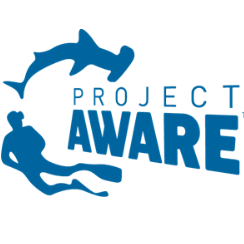UN member states gathered in New York from the 15th-26th of August 2022 for an intergovernmental conference where delegates were tasked with drafting the first-ever Oceans Treaty on Biodiversity. The proposed Ocean Treaty would be an international legally binding framework under the 1982 United Nations Convention on the Law of the Sea with regard to the protection and sustainable use of marine biodiversity found in the open sea and other areas beyond national jurisdiction. While the talks did make some headway, particularly with regard to the formation of ocean sanctuaries, UN member states could not agree on how to establish marine protected areas, share benefits attained from marine resources, or control human activity on the high seas.
"Although we did make excellent progress, we still do need a little bit more time to progress towards the finish line," said Intergovernmental Conference President, Rena Lee (from Singapore), according to Agence France-Presse.
In this fifth session, which followed on from four previous sessions that were set in motion following a resolution (72/249) signed in December 2017, delegates met to negotiate measures to protect marine genetic resources and discuss matters such as equitable sharing of benefits, tools for area-based management of marine resources, environmental impact assessments, capacity building and the transfer of technologies.
Currently it's open day on the open ocean beyond territorial waters. With no legally-binding framework to protect them, marine resources on the high seas are exploited recklessly, threatening marine biodiversity and putting the health of the marine environment and the planet at large at risk.
The high seas — international waters that lie beyond the territorial waters and exclusive economic zones of nations — makes up two-thirds of the ocean, yet only 1% is protected. This vast expanse of no-man's land, or rather open waters, not only plays a significant role in supporting global fisheries, it also plays a crucial role in buffering against climate change by absorbing heat and serving as key habitat for phytoplankton that are vitally important for sequestrating carbon dioxide from the atmosphere and releasing oxygen that living creatures, including humans, need to survive.
"The high seas epitomize the tragedy of the commons," said Marco Lambertini, Director General of WWF International. "Because they don't belong to anyone, they have been treated recklessly with impunity. We need a common governance mechanism for our oceans to ensure that nobody's waters become everyone's waters – and everyone's responsibility."
The High Seas Treaty is urgently needed to provide a legal framework to protect marine resources and biodiversity in currently unprotected international waters against overfishing and unregulated seafloor mining through measures such as Marine Protected Areas — designated areas set aside as ocean sanctuaries—, enforcement of environmental rules, and Environmental Impact Assessments being required before any human activities can proceed in these waters.
This conference followed on the heels of the United Nations Ocean Conference held in Lisbon, Portugal from 27 June - 1 July, where attendees gathered to address the deteriorating health of the oceans and declining productivity of marine resources.
Environmentalists hoped that this 15th session would culminate in an agreed draft treaty text on the "the conservation and sustainable use of marine biodiversity beyond national jurisdiction" being produced. The High Seas Treaty would require member states to agree on how the treaty would be implemented, which is holding up the process as some states have resignations about how the new rules and regulations will affect their ability to catch fish or conduct mining operations on the seafloor. Other issues that are stalling the treaty include members reaching an agreement on the processes that will be followed for conducting environmental impact assessments and for the creation of marine protected areas.
World Wildlife Foundation's (WWF) Senior Ocean Governance Expert Jessica Battle - who attended the negotiations - told BBC News that the Arctic was a divisive issue: "As it opens up due to climate change and we have much shorter winters, that is going to open up a whole new area of extraction."
Environmental campaigners feel that the unwillingness of some participating members to compromise is causing a stalemate, with the oceans and communities who depend on them ultimately being the biggest losers.
While progress has been made, more compromises and commitments will be needed by world leaders and members of the High Ambition Coalition to ensure that the next round of U.N. talks produces a strong final treaty and safeguard global ocean health for future generations.
Sources
https://www.cbsnews.com/news/un-high-seas-treaty-talks-to-protect-oceans-overfishing-sea-mining/
https://news.un.org/en/story/2022/08/1124702
https://www.bbc.com/news/science-environment-62680423.amp
https://amp.theguardian.com/world/2022/aug/27/united-nations-ocean-treaty-marine-life










